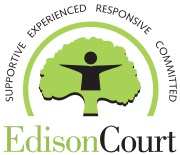
Since the story of the Garden of Eden where the lying serpent enticed Eve into committing the original sin, deception has been cast as the ultimate source of evil. Lying has posed both a moral issue and legal challenge and through the centuries, authorities have employed some gruesome techniques to extract “truth” which thankfully have given way to religious oaths, cross examinations, and threats of incarceration. Technological developments have had an impact as well. The polygraph, brain fingerprints, EEG’s, and the psychological stress evaluator have been touted for their ability to detect deception.
Working with sexual offenders requires special skill in understanding and rooting out deception during interviews and treatment. But how successful are humans at detecting deception? There are widespread beliefs about how people behave and what they say when they lie. For example, both lay persons and professionals overwhelmingly expect liars to act nervously, not to maintain eye contact, and to fidget when they lie (Taylor & Hick, 2007).
As best as the research can tell deception detection is not that simple (Navarro, 2012). Hartwig & Bond (2014) found that lies are barely evident within observed behavior. However, Vrij, et al. (2010) found that verbal cues are more accurate than non-verbal cues and that there are psychological differences between liars and truth-tellers that can be exploited in deception detection efforts.
For instance, using strategic open ended questions, “What did you do yesterday between 3 p.m. and 4 p.m.?” encourages interviewees to talk and allows for opportunities to identify inconsistencies between the answer and available evidence. Also, asking very specific unanticipated questions, about spatial relationships (e.g., “in relation to the bedroom where was the door”) or in an unexpected format (e.g., “draw where you were in the room”) aids in lie detection.
Lying can be more cognitively demanding than truth-telling (Virj et.al, 2010). It requires more brain power to come up with a lie and keep track of it (e.g., who was told what) than it does to tell the truth. Imposing “cognitive load” on interviewees for example by asking them to recall events in reverse order may also be useful in weeding out liars from those telling the truth.
Recent indications from the field of treating sexually problematic youth however have raised questions about the ‘best practice’ of truth detection relating to what, how, and when truth is actually of benefit. (to be continued)…

Add new comment